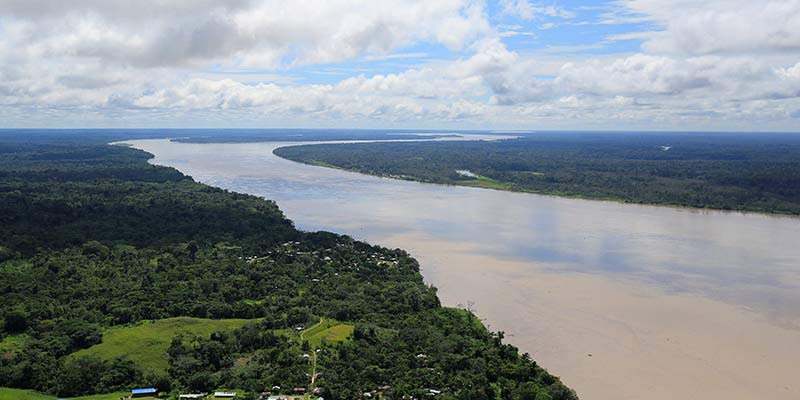Adolfo Zon, bishop of Alto Solimões, Amazonia (Brazil), describes the missionary activity of the Church in his diocese and assures that the convocation of the next synod of bishops for the Amazon region is closely linked to the development of the encyclical Laudato si.
TEXT - Adolfo Zon, Bishop of Alto Solimoes, Amazonia (Brazil)
A few days ago, the Catholic Church celebrated with enthusiasm and joy World Mission Sunday (World Mission Sunday). It was a campaign of prayer and support for missionaries working on every continent. We too, in our poverty, collected and sent money to the Pope for the communities that are most in need.
To better understand what I am going to comment in these lines, I am asked to explain what a priest from Orense does in Brazil. I was born in Galicia (Spain) in 1956 and I have been a Xaverian missionary in Brazil for 24 years. My mission is none other than to globalize the culture of love. I want the Church to reach everyone, and offer the opportunity to know Jesus and to have an integral personal development. In 2014, Pope Francis appointed me bishop of the diocese of Alto Solimões in the Brazilian Amazon, a very missionary place. This diocese has 131,000 km² and a population density of 1.4 inhabitants per km².
The world's largest rainforest and the lungs of the world, that's how the Amazon is known outside its borders. But when you live here you realize that the Amazon is much more. I am still amazed by the variety of ethnicities, the multiculturalism, the landscapes, the hospitality and kindness of its people, and the good reception they have given to our message. They subsist on little, but still they do not lose their smile. The economy is based on the primary sector, predominantly agriculture and fishing. For our part, we promote a more specialized, competitive and organized agriculture.
The challenges increase when eleven different ethnicities, languages and cultures coexist. To bring the Word of God closer to them, we need to learn their language, be creative and close to them. The pastoral ministry draws up a plan of evangelization for each specific group, it is a constant challenge since we are very few pastoral agents. There are communities where we can only celebrate the Eucharist once a year because we have 15 priests for 216,000 inhabitants, of which 33 % are indigenous peoples. The Tikunas -about 46,000- are the most numerous ethnic group.
Here we see dramas typical of any border region. Corruption and trafficking of all kinds: of people, animals, drugs, etc. To reduce these evils, the pastoral tries to provide support, accompaniment and education in values. In addition, there are environmental problems such as deforestation and water pollution.
Against this backdrop, the convocation of the next synod of bishops in October 2019 did not come as a surprise. We knew that the Pope was interested in convening a synod in October 2019. Extraordinary Assembly of the Synod of the Obispos for the pan-Amazon regionThe purpose of the meeting was to analyze the path to follow in order to have a greater presence among the indigenous peoples. It is not just any presence, we want to discover together that God who precedes the mission.
In the same way, the encyclical Laudato si will give us light and guidelines to promote an integral care of our common home, with a special focus on the Amazon rainforest. This area is decisive for the future of humanity and climate change pushes us to take firm and immediate steps towards a reconciliation with nature.
"The human environment and the natural environment degrade together, and we will not be able to adequately address environmental degradation if we do not pay attention to causes that have to do with human and social degradation."Pope Francis writes in the encyclical. For this reason, the synod will be marked by these two closely related variables: people and the ecosystem.
While we are waiting for this important meeting, our project is centered on an experiential catechesis. That is, to be ever closer to the people, to be witnesses and to live the Gospel every day. In all these years, I have noticed that the number of followers of Jesus grows through the example and the constant presence of religious in the lives of the people. Accompanying them in their joys and sorrows is a wonderful task.
Mission is born of baptism, wherever we are, we are all called to live in permanent mission. I encourage all of you to consider mission as a way of life. The Catholic Church needs human resources, people who offer themselves for the cause of Jesus, and in short, the Amazon invites all missionaries to sow words of love in the most forgotten and vulnerable peoples of the planet.












